Introduction
How High Can Guinea Pigs Jump: Guinea pigs, those endearing and gentle creatures that have captured the hearts of countless pet owners, are renowned for their charming personalities and adorable antics. These pint-sized rodents are often seen scurrying about their enclosures, nibbling on fresh vegetables, and emitting those endearing squeaks that can melt even the coldest of hearts. To many, the notion of guinea pigs leaping into the air might seem somewhat comical or even implausible. After all, their short, plump bodies and tiny legs don’t exactly scream “high jumpers.” However, these seemingly modest creatures possess a surprising athleticism that often goes unnoticed.
Guinea pigs may not rival Olympic athletes in terms of vertical leap, but their capacity for leaping does offer fascinating insights into their behavior and physical abilities. In the world of guinea pig jumping prowess, shedding light on the factors that influence their vertical agility. From the anatomy of their limbs to the role of their environment, we will unravel the mysteries of just how high guinea pigs can spring into the air. Moreover, we will discuss the practical implications of their jumping abilities for their health and well-being in captivity, as well as offer tips for responsible.
Guinea pig owners to ensure the safety and happiness of their beloved pets. So, join us on this enlightening journey as we uncover the captivating world of guinea pigs feet jumps, exploring the science, the fun, and the considerations that come with these endearing creatures taking to the skies. Whether you’re a seasoned guinea pig enthusiast or simply curious about these charming animals, you’re about to embark on an adventure that will reveal the surprising heights to which guinea pigs can soar.
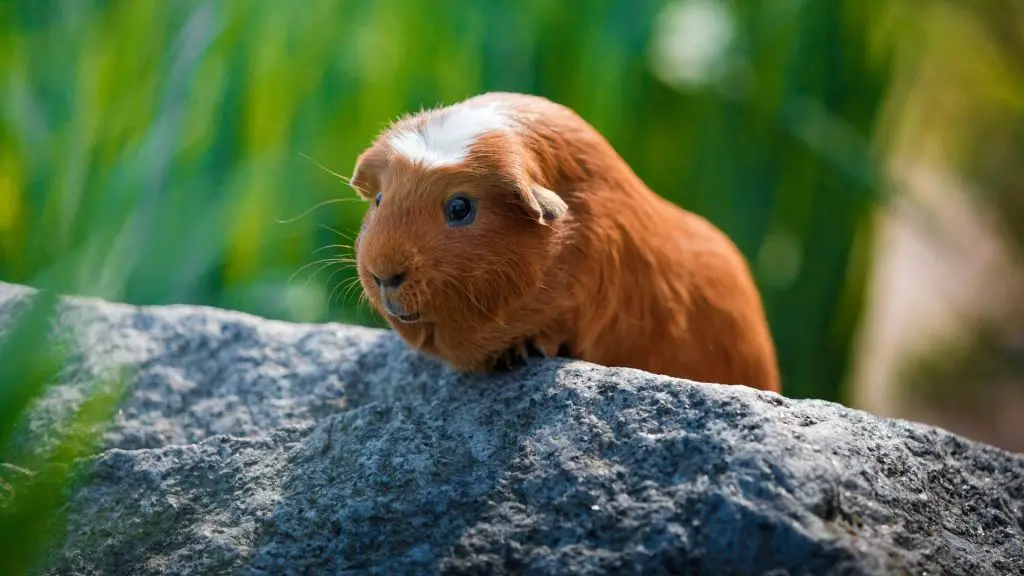
Is it good for guinea pigs to jump?
When content and running around you may occasionally see your guinea pig jump, twist and jerk, making a grumbling purring noise as they go. This is usually as a display of happiness and if witnessed in a healthy guinea pig, exploring or playing in their environment, then it should be enjoyed as a sign they are happy.
Exercise and Physical Health: Jumping is a form of physical exercise for guinea pigs. It engages their leg muscles and overall physical fitness. Regular exercise is essential for maintaining a healthy weight and preventing obesity, which can be a concern for guinea pigs.
Mental Stimulation: Jumping also mental stimulation. It helps guinea pigs stay mentally active and alleviates boredom, reducing the risk of depression or anxiety-related behaviors.
Communication: Guinea pigs use various sounds and actions to communicate with each other. Jumping can be a way for them to signal excitement or curiosity to their companions, fostering social interaction.
Exploration: Jumping allows guinea pigs to explore their surroundings more effectively. It helps them reach food sources, hide from perceived threats, or investigate new objects in their environment.
Can guinea pigs be high up?
An enclosure for guinea pigs must be at least 30cm in height. Because they are not inclined to climb or jump, most can be kept in open-top cages provided the sides are at least 30cm high. Roofing may be required if there is a risk of predation by dogs, cats, or birds of prey.
Cage Setup: Guinea pig cages or enclosures can be designed with multi-level platforms or ramps that allow them to access higher areas. These elevated spaces can serve as cozy spots for them to rest or observe their surroundings.
Safety Measures: It’s crucial to ensure that any elevated areas in the cage are designed with the safety of the guinea pigs in mind. Ramps should have gentle slopes to prevent accidents or injuries, and any high platforms should have protective railings to prevent falls.
Supervision: When introducing guinea pigs to elevated areas for the first time, it’s a good idea to supervise them to ensure they can navigate safely. Some guinea pigs may be more hesitant or less skilled at climbing than others.
Escape from Predators: In the wild, guinea pigs would use elevated terrain as a means to escape from potential predators. In a domestic setting, elevated spaces can offer them a sense of security.
Why do guinea pigs lick you?
If your guinea pig starts licking you, this could be a very good sign that he or she likes you. It’s generally regarded as a very affectionate gesture. In the same way that they show affection through grooming one another, they could well be attempting to groom you to!
One of the most common reasons guinea pigs lick their owners is to express affection and build a bond. Guinea pigs are social animals, and they often form strong attachments to their human caregivers. Licking can be their way of showing affection and trust. They might see you as a member of their group and engage in grooming behavior, which is a natural social activity among guinea pigs.
Guinea pigs are naturally curious creatures, and they use their mouths to explore and interact with their environment, including you. When they lick you, they might be trying to taste or explore your skin, hair, or clothing. Your skin might have a different scent or taste than their usual surroundings, piquing their curiosity.
Guinea pigs have a keen sense of smell and taste. They might lick your skin if it’s salty due to sweat or residue from food. This saltiness can be appealing to them, and they may lick to taste the salt. This behavior is more likely to occur in hot weather when you may be sweating more.
Guinea pigs have a range of vocal and non-vocal ways to communicate. Licking can be a form of communication, albeit subtle. It may signal contentment or a desire for interaction. If your guinea pig licks you and then nuzzles or purrs, they may be expressing happiness and comfort in your presence.
How not to hold a guinea pig?
Avoid holding your guinea pig so that your hands are only holding them under their front arms. This position does not have any support for the bottoms which can make them incredibly uncomfortable and stressed.
One of the most common mistakes is holding a guinea pig too loosely. Guinea pigs are small and can easily slip out of your grasp if not properly secured. Always support the guinea pig’s body with both hands, keeping a firm but gentle grip to prevent any accidental falls.
Guinea pigs can be sensitive to sudden movements and loud noises. Avoid startling them by picking them up too quickly or abruptly. Instead, approach your guinea pig calmly and slowly. Offer your hand for them to sniff or nudge before attempting to lift them.
Before handling your guinea pig, it’s crucial to wash your hands thoroughly with mild soap and warm water. Guinea pigs have sensitive skin, and any residue from lotions, perfumes, or food can irritate them. Failure to wash your hands can lead to skin issues for your pet.
Guinea pigs have distinct personalities, and not all of them enjoy being held in the same way. Some may be more comfortable being gently cradled, while others prefer to sit on your lap or shoulder. Pay attention to your guinea pig’s body language and preferences, and adjust your handling style accordingly to ensure their comfort.
What are guinea pigs scared off?
Fears of toys, people, and loud noises are the most common fears. There are many reasons why a guinea pig may develop fears of people. For example, a bad experience with a small child could result in a guinea pig that is fearful of all small children.
Guinea pigs have sensitive hearing, and loud noises can startle and frighten them. Common sources of loud noises in a household include vacuum cleaners, blenders, or sudden claps of thunder. To reduce their anxiety, keep your guinea pigs’ living area in a quiet part of your home and try to minimize loud noises when they are nearby.
Guinea pigs can be easily frightened by sudden, fast movements. Quick hand gestures or reaching into their cage too abruptly can make them feel threatened.
Approach your guinea pigs slowly and gently to avoid startling them. Give them time to become familiar with your movements.
Guinea pigs are prey animals, and they instinctively fear animals that they perceive as predators. This includes dogs, cats, and other larger pets. Always supervise interactions between guinea pigs and other animals to ensure their safety. Even if your dog or cat is gentle, guinea pigs may still find their presence intimidating.
Can I leave my guinea pigs overnight?
Although some websites suggest that it’s okay to leave your guinea pigs alone for a weekend, we recommend that you don’t. Should work or family commitments come up that need you to be away from your piggies for 24 hours or more, you need to plan accordingly.
Guinea pigs need access to fresh food and clean water at all times. They have sensitive digestive systems, and a lack of food or water can lead to health problems. If you’re leaving overnight, ensure that their food bowl is filled, and their water bottle is topped up. You might consider using a larger water bottle or providing an source of water to minimize the risk of running out.
Guinea pigs are social animals and thrive on companionship. Leaving them alone for extended periods can lead to loneliness and stress. If you have multiple guinea pigs, they can each other with company. However, if you have a single guinea pig, the issue of loneliness becomes more significant.
Ensure that your guinea pigs’ enclosure is safe and secure. Check for any potential hazards, such as loose wires, toxic plants, or sharp objects that they might come into contact with. Guinea pigs need a clean and comfortable environment to thrive, so clean their cage before leaving and sample bedding.
Guinea pigs are sensitive to extreme temperatures. Ensure that their environment is at a comfortable temperature, free from drafts or excessive heat. If you’re leaving in colder weather, consider providing bedding or a safe heating source to keep them warm.
Do guinea pigs smell indoors?
In a nutshell, guinea pigs shouldn’t smell. If they are giving off an unpleasant odour, it’s usually a sign that the cage isn’t clean, their diet is wrong, they’re sick, or they’re struggling to groom themselves. Also, boars may smell more than sows because of an oily buildup around the grease gland.
A guinea pig’s diet can also affect the way they smell. A balanced diet of fresh hay, high-quality guinea pig pellets, and fresh vegetables is essential for their health and can help regulate their digestive system, reducing unpleasant odors from their feces.
Proper ventilation in the room where you keep your guinea pigs can make a significant difference in minimizing any odors. Good airflow can help dissipate any pet-related smells and maintain a fresher indoor environment.
If you have both male and female guinea pigs, it’s separate them to prevent unwanted pregnancies. Male guinea pig urine can have a stronger odor, especially when they’re trying to assert dominance or mark their territory during interactions with females.
Regular health checks are crucial for your guinea pigs. Sometimes, changes in their odor can be a sign of illness or infection. If you notice a sudden and significant change in the way your guinea pigs smell, consult a veterinarian for a check-up.
Do guinea pigs get hurt easily?
Because of their small size, guinea pigs often suffer injuries when outside their cages. They can be seriously injured if they are stepped on or fall off a table. Like many other rodents, guinea pigs are attracted to anything that looks interesting to chew. Electrical cords are common hazards for these animals.
Guinea pigs are small animals with relatively fragile bodies. Their petite size means they are more vulnerable to physical harm compared to larger pets. Their bones are delicate, and they can be injured if subjected to rough handling or falls from a significant height. Care must be taken when interacting with guinea pigs to prevent accidental injury. This includes handling them gently and ensuring they are secure to prevent falls.
Guinea pigs are social animals and often thrive in pairs or small groups. However, their sociable nature can also lead to injuries if they are housed with incompatible cage mates. Dominance behaviors, territorial disputes, and occasional fights can result in bite wounds or scratches. It’s essential to monitor their interactions and consider separating them if aggressive behavior persists.
The design and maintenance of their housing environment can play a significant role in preventing injuries. Sharp objects, wires, or small openings in their enclosures can pose risks to curious guinea pigs. Ensure that their cage or playpen is free of hazards and that they have safe hiding spots to retreat to if they feel threatened.
Guinea pigs can become stressed when they are not handled gently or are subjected to loud noises and sudden movements. Stress can have adverse effects on their health and well-being. When handling guinea pigs, approach them calmly and gently. Avoid making sudden movements or loud noises to prevent stress-related injuries.
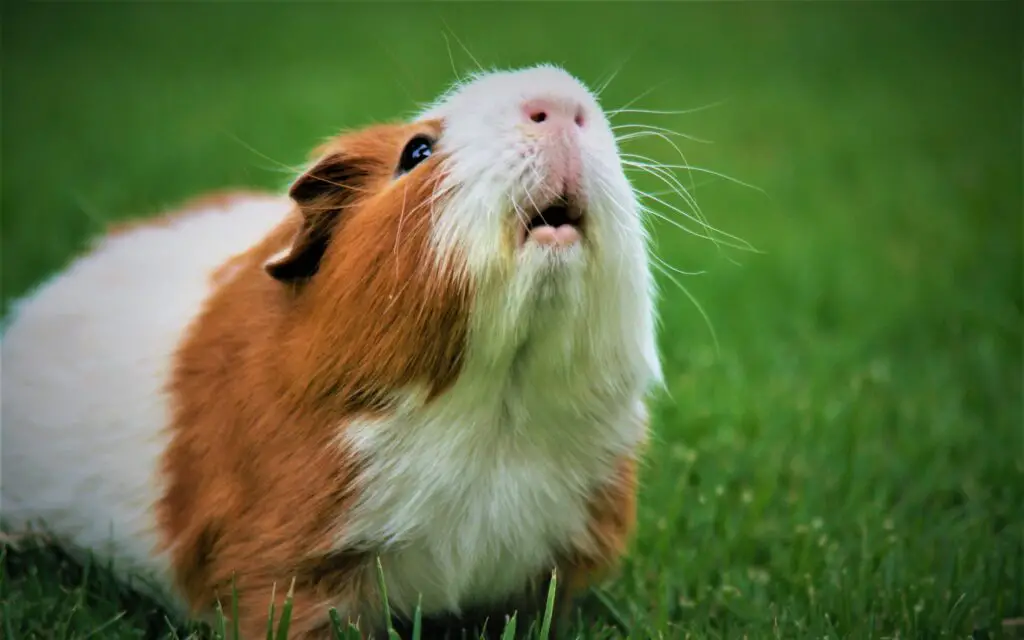
Conclusion
In guinea pig jumping, though seemingly modest, reveals fascinating insights into the lives of these endearing creatures. Guinea pigs may not be known for their high-flying antics like some other animals, but their jumping abilities are a testament to their unique adaptations and the nuances of their behavior. Throughout our exploration, we have discovered that guinea pigs are capable of modest jumps, typically ranging from a few inches to a foot in height. While this might not impress in the realm of extreme athleticism, it serves several functions in their lives. Guinea pigs use their jumping abilities to navigate their environments, reach food sources, and communicate with one another.
These small leaps can convey excitement, curiosity, or even a pigs signal of danger to their fellow guinea pigs. We have also learned that various factors influence a guinea pig’s jumping prowess, including their age, breed, and individual personality. Younger guinea pigs tend to be more active and inclined to jump, while certain breeds may exhibit more agility than others. Understanding these variations can help guinea pig owners better cater to their pets’ unique needs and preferences. Moreover, we have explored the guinea pigs with safe and enriching environments that encourage their natural behaviors, including jumping.
Ensuring they have ample space to explore, play, and interact with toys not only promotes physical health but also enhances their mental well-being. In guinea pig jumping has illuminated the multifaceted nature of these delightful rodents. It reminds us that even the smallest of creatures possess unique qualities and adaptations that make them intriguing and valuable members of the animal kingdom. So, whether you’re an experienced guinea pig owner or someone simply curious about these charming pets, the world of guinea pig jumping has us with a deeper appreciation for the subtle marvels that make these furry companions such cherished members of our households.

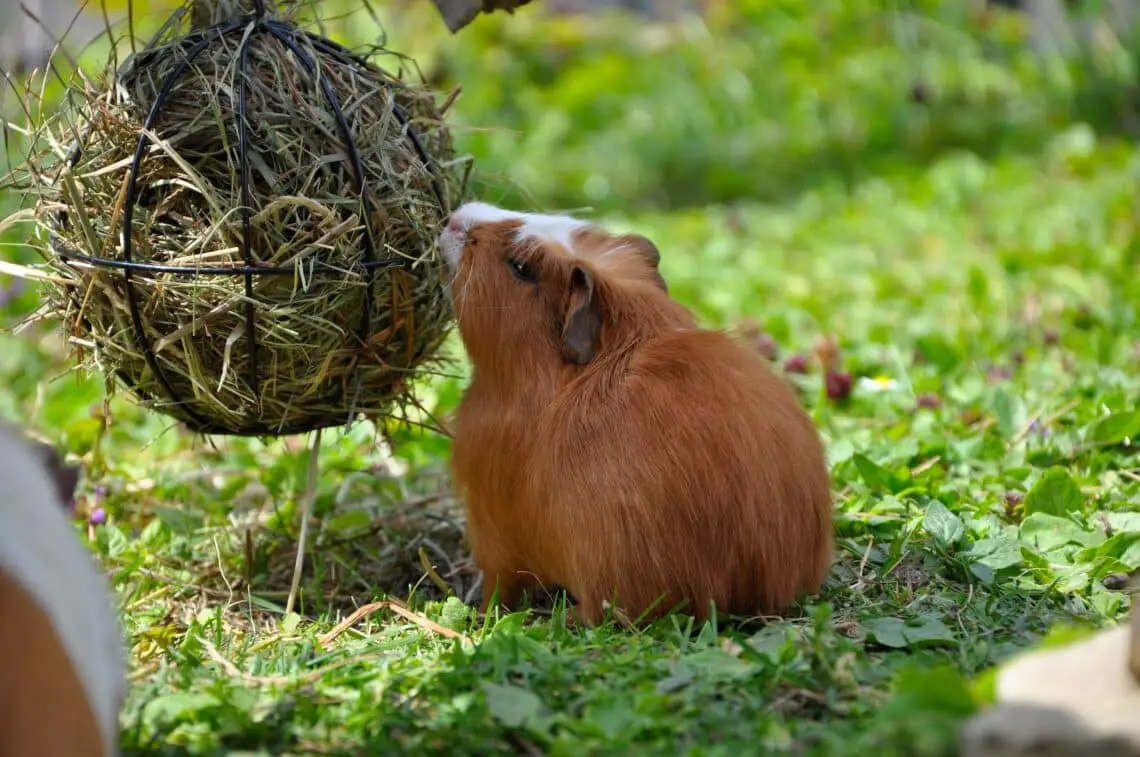
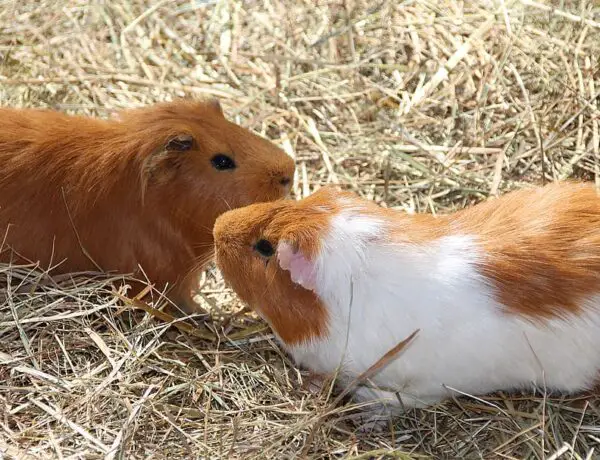
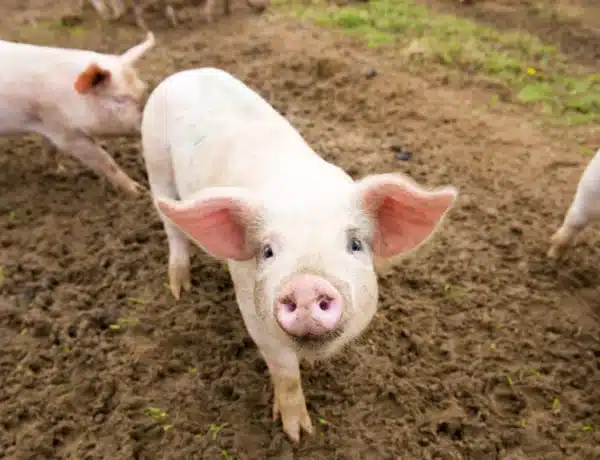
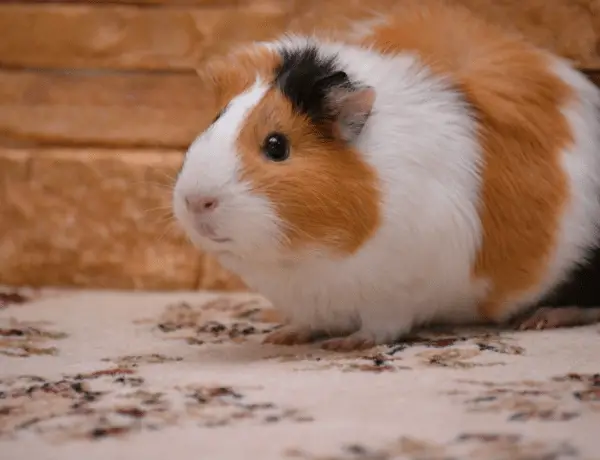
No Comments